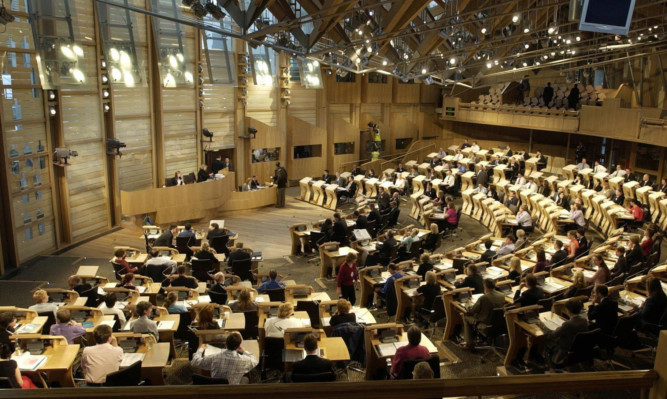MSPs have called for changes to be made to Holyrood’s committees but have rejected the idea of introducing elections for conveners.
Members of the Standards, Procedures and Public Appointments (SPPA) Committee said they had not been persuaded elected conveners “would result in more effective committees or conveners”.
At the moment, it is the political parties who decide who should head up Holyrood’s committees.
Presiding Officer Tricia Marwick had suggested elections to decide who should head a committee could be the “next natural step” in the reforms she has made to how the Scottish Parliament operates.
However, a report from the SPPA Committee said it did “not recommend that the Parliament makes any change to the current system of choosing committee conveners”.
It did say committees should have a maximum of seven MSPs as members, arguing that “smaller committees can deliver focused and effective scrutiny”.
The high turnover of MSPs on committees “can be a real difficulty”, according to the SPPA Committee, which suggested steps should be taken to minimise this.
It also said the next parliament should consider having a second justice committee – as was the case prior to 2007 – as this committee “is more consistently burdened with legislation than any other”.
Meanwhile, the Scottish Government has been called on to publish a report on the impact of legislation within three to five years of a Bill becoming law.
The committee’s report argued reform was necessary because “the Parliament needs to respond to the huge increase in public engagement with politics across Scotland following the independence referendum”.
It also pointed out: “Further powers for the Parliament in areas such as taxation and social security will broaden the scrutiny activity of committees.”
SPPA Committee convener Stewart Stevenson said: “The aim of any change must be to make committees more effective at scrutinising legislation and government policy, and holding the government of the day to account.
“We believe there are already many examples of committees working with great effectiveness – challenging the Government, questioning ministers, airing public concerns.
“Our recommendations, and a greater emphasis on post-legislative scrutiny, will see committees working at this level of effectiveness, more of the time.”
